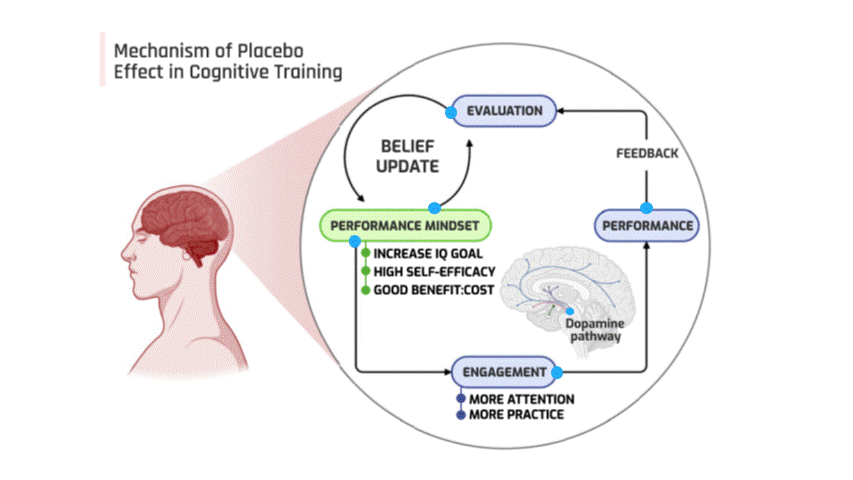Have you ever tried brain training apps like Lumosity, Cognifit, or BrainHQ? These programs promise to sharpen your cognitive skills, improve memory, and even boost your IQ. But is there real science behind these claims, or are we just playing into clever marketing?
Surprisingly, the latest research suggests that the placebo effect might be doing more for your brain than the training games themselves. While countless studies have shown that brain training tends to only improve performance on specific tasks – like the ones you practice in the app – these improvements rarely transfer to other areas of your life, such as problem-solving or decision-making.
However, there’s a fascinating twist: if you believe that the training will improve your cognitive abilities, it just might! Studies are showing that participants who expect brain training to work actually perform better on intelligence tests. This isn’t just wishful thinking. When you believe the training will work, your brain releases dopamine, a neurotransmitter that strengthens reward learning and motivates you to stay engaged. This creates a feedback loop where your belief reinforces effort, and effort leads to improved performance.

Over time, these placebo-driven effects can become more deeply ingrained, leading to neuroplastic changes – that is, the brain’s ability to adapt and reorganize itself. So even though the games may not be the magic bullet they claim to be, your belief in them might be driving real, lasting improvements in your cognitive performance.
Interested in diving deeper into the science behind the placebo effect in brain training? Read the full article here.